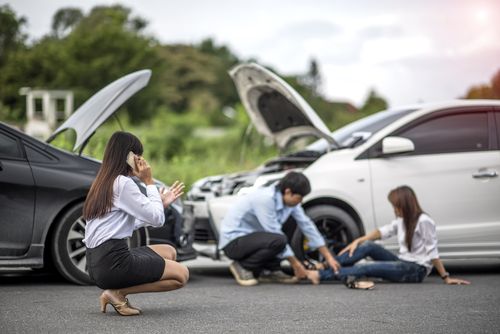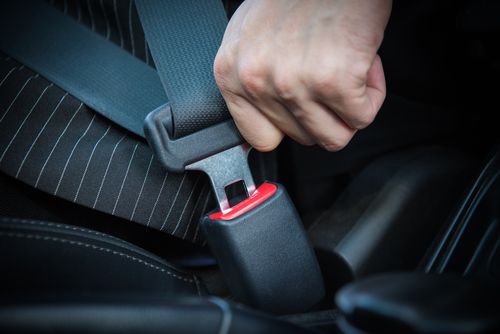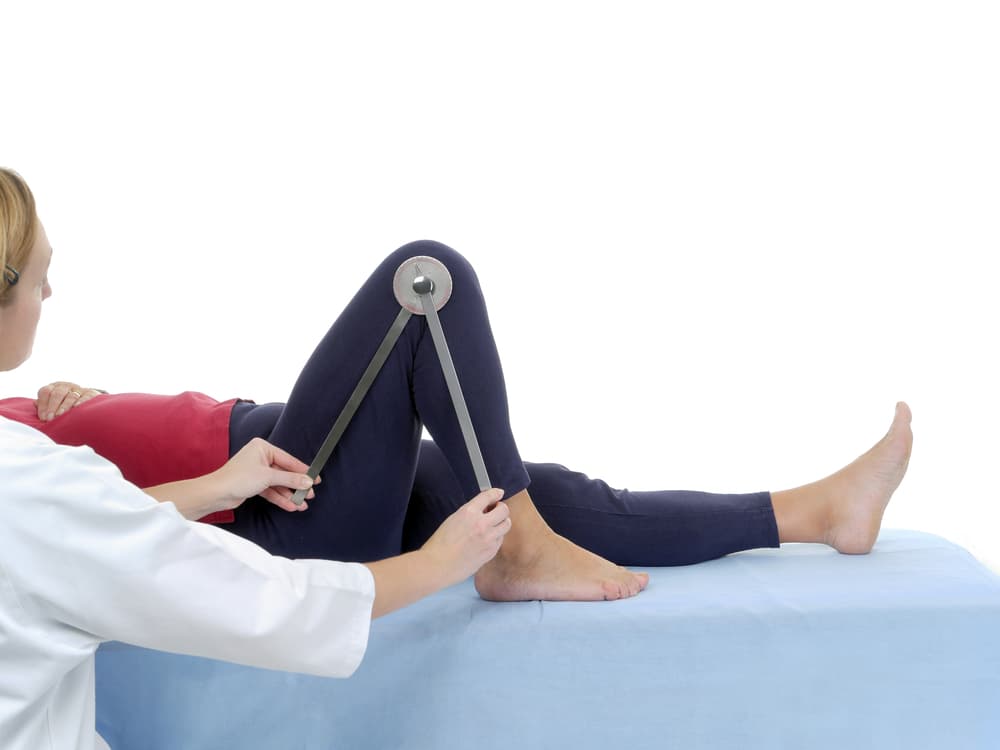In a car accident, you are generally responsible for paying your own medical bills until you recover compensation from the liable party. A claim or a lawsuit may provide you with the compensation you need, either from the liable party’s insurance company or on occasion from their own pocket.
Accident victims should not have to pay for their own medical care and related expenses after a crash they did not cause. Instead, most states allow them to hold the at-fault driver accountable for their negligence. Working with a car accident lawyer could help you seek fair compensation after a collision, including the money you need to pay for your current and future medical care. Ongoing care costs are generally recoverable.
Most personal injury law firms provide free consultations. During this conversation, you can learn about your legal options, get a free case assessment, and ask questions about your next steps. These are generally over the phone or via video call, although some firms might meet with you in person.
Paying for Medical Bills Following a Car Crash

In most cases, there are options for crash victims to seek compensation for the expenses and losses they endured because of a collision. Every state has laws that give you some opportunity to file an insurance claim or lawsuit to secure a payout. Your final settlement may include compensation for your medical treatment and related costs. Additionally, many states, such as New York, have no-fault benefits that allow you to seek coverage for medical expenses and other basic economic losses.
Generally, recovering compensation for your medical bills requires you to:
- File an insurance claim; or
- File a personal injury lawsuit against the at-fault driver; or
- Pursue both of these options concurrently
The best option for approaching your case depends greatly on the circumstances, the severity of your injuries, applicable laws, and other details. Working with an attorney ensures you have someone with knowledge, experience, and resources on your side through this process. The attorney can develop a plan to seek fair compensation for you based on your damages, including your current and future medical care costs.
Having legal guidance in this process is especially important for those with injuries that require future treatment or ongoing care and support. They must ensure they understand the cost of their future medical needs and include it in their case. Otherwise, they could pay these costs out of pocket later.
What Happens Until You Recover a Payout for Your Car Accident Medical Bills?
Until you recover a payout for your car accident medical bills, you are generally responsible for paying these bills on your own. Fortunately, New York no-fault insurance covers most car accident victims. This will pay for some basic economic losses, including medical bills. While you may feel frustrated paying the expenses for an accident you did not cause, your attorney can work with you to pursue compensation.
Once you receive compensation, that payout can pay for medical bills no-fault insurance does not cover. Until your case is settled and you have received the money you need, your lawyer can assist with any phone calls you get demanding payment.
Building a Case to Recover Compensation After a Crash
Most states base traffic collision cases on fault. Victims pursue a case against the at-fault driver and recover compensation based on their damages. To get the payout they deserve, the victim must show the driver acted carelessly or recklessly and caused the crash. In these cases, careless or reckless behavior is known as negligence.
When building a fault-based collision case, to confirm negligence you need a lawyer who can prove:
- Duty of care: All drivers have a duty of care to drive safely and keep all other road users safe.
- Breach of duty: If a liable party does not drive safely, they breach their duty of care.
- Causation: The liable party’s negligence is the reason you were in an accident and suffered injuries.
- Damages: As a result of the car crash, you are facing damages such as expensive medical bills and painful injuries.
Most crashes occur because the negligent driver violated a traffic law, which is a breach of their duty of care. For example, drivers must follow all road signs and signals. When a sign tells them to yield before turning left on a green light, they have a duty to do so. Failure to uphold their duty of care can lead to a collision.
In this situation, the driver who violated the law due to their carelessness or recklessness caused the crash. They are, therefore, liable for the damages that occurred in most states. That individual or their insurance carrier is legally responsible for paying the medical bills of the victim. The victim will just need to show what occurred and provide evidence to show that the accused driver caused the crash.
No-Fault Insurance Claims
Twelve states do not first turn to fault-based insurance claims following a crash. These states require no-fault insurance policies. Also called personal injury protection (PIP) coverage, these policies pay for the basic expenses and losses of the policyholder after a crash. They pay regardless of fault.
However, no-fault policies only cover basic expenses and losses. This is generally limited to some of their lost income, medical bills, and miscellaneous expenses like travel costs and parking. They do not provide compensation for pain and suffering and other non-economic damages.
Many crash victims who live in states that require no-fault coverage still pursue fault-based claims. Each of these states has its own rules for when a collision victim pursues compensation from the at-fault driver. Sometimes it depends on the severity of their injuries, the cost of their medical care, their no-fault policy limits, or other factors.
One way to learn about your options in a state with no-fault insurance coverage is to discuss your crash with a personal injury attorney near you. Most provide free consultations, so you have the option to discuss your next steps with the attorney’s legal team at no cost to you or your family.
Recoverable Damages for Your Medical Bills and Other Crash Expenses
The injuries suffered in a collision vary widely. Some people suffer injuries that doctors treat quickly, and they recover fully within a week or two. Others have catastrophic injuries that affect almost every aspect of their life from that day forward. Many fall somewhere in the middle.
Car insurance laws in most states allow victims to seek compensation regardless of the severity of their injuries. If they have medical bills and other expenses, they have a right to sue the liable party or file an insurance claim for monetary damages.
In any collision case, the recoverable damages could include:
- Medical bills to date
- Future medical care costs
- Ongoing care and support for lasting injuries
- Lost income
- Diminished ability to work and earn
- Miscellaneous expenses
- Pain and suffering
- Mental anguish
The key to recovering fair compensation is often documenting the damages you suffered. This includes gathering all medical bills, filing receipts, and showing time away from work. But it also requires working with medical experts to understand the prognosis, future treatment needs, the costs of ongoing care and support, and more. Expert witnesses play a central role in determining the costs related to future care in these cases.
Ensuring there are accurate estimates of future care costs is paramount. Victims should not have to pay their medical bills out of pocket. Your attorney should ensure they understand your prognosis and medical needs before agreeing to a settlement or taking the case to trial.
Injuries Commonly Suffered in Car Accident Cases
For car crash lawyers, some of the most difficult cases often deal with catastrophic injuries. These are life-altering, and the victims require ongoing care and support, which makes documenting and recovering their future medical needs more complex.
Car accident injuries include:
- Traumatic brain injuries (TBIs)
- Spinal cord injuries and paralysis
- Severe burns and scarring
- Traumatic amputation
- Crush injuries
- Multiple fractures
- Soft tissue spinal injuries
An Attorney Can Help You Recover Money to Pay Your Medical Bills
Following a car crash, one way to recover compensation for your medical bills and other expenses is to work with an attorney. They can handle all aspects of your insurance claim or lawsuit while you focus on your treatment and healing from your injuries. Your attorney will know how to navigate the process and pursue the money you need to cover your costs and losses.
Your attorney will protect your right to pursue fair compensation from the first day they accept your case. This includes managing all communication with the insurance companies, ensuring you meet the applicable deadlines, and helping you build a strong case to support a just payout. They know the tactics insurance carriers use to reduce and deny claims and work to avoid them.
They will also handle your investigation, gathering evidence to show the other driver caused the crash.
This investigation could yield:
- Eyewitness statements and interviews
- The crash report filed by responding law enforcement officers
- Photos or videos of the collision
- A survey of the crash scene
- Accident reconstruction
- Forensic analysis of the physical evidence
- Relevant medical records
- Documentation of damages, such as bills, receipts, tax forms, and other paperwork
With strong evidence to support the claim, they could demand a fair settlement from the at-fault driver’s insurance carrier or sue through a civil lawsuit. Sometimes, they might take both options at once, filing both an insurance claim and a lawsuit. When this occurs, they continue negotiating with the insurer throughout the process.
These cases often still settle before going to trial. If your case does go to trial, your attorney can represent you and inform you on what to expect.
How Long Do You Have to File a Claim or Lawsuit?
While there is not generally a deadline for filing a car crash insurance claim, it is important that you get started as soon as your injuries allow. Evidence disappears quickly in collision cases, whether that is video footage or the crash or witnesses’ memories. The sooner a lawyer begins working on the case, the sooner they can preserve this evidence.
There are deadlines for beginning a lawsuit, however. These are called the statute of limitations. Every state has its own statute of limitations. In some states, you may have several years to get your case filed, while in others, you may only have one year. There is also a statute of limitations that applies to wrongful death cases. Whether you are pursuing compensation for personal injury or wrongful death, it may be best to get started on your case right away.
Exceptions to the statute of limitations sometimes exist, meaning the victim could have a longer or shorter time to act before a deadline arrives. You can learn about the timeline in your case by connecting with a personal injury lawyer as soon as your injuries are stable, and you are able to make the call.
You Can Discuss Your Options With a Law Firm Near You Today
If you suffered injuries in a crash and need to recover compensation for your medical bills and other damages, working with an attorney could benefit you. Most law firms provide free consultations so you can learn more about their services and ask any questions you have. During this discussion, they may also assess your legal options and explain the next steps you should take in your case.
There is no obligation to hire them, but it is often less stressful to recover fair compensation with help from a knowledgeable, experienced attorney.
To learn more about what you must do to recover money to pay your medical bills, you may want to contact a personal injury attorney in Long Island for a free consultation today. They should explain your legal options based on the laws in your state. This free consultation is often the first step to recovering fair compensation for your medical care costs and seeking justice against the at-fault party.








